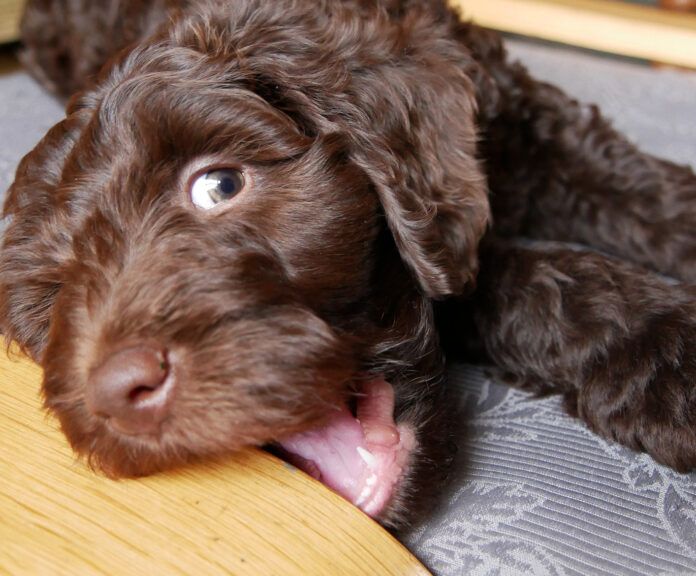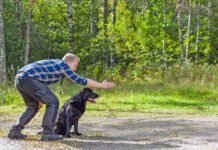Chewing on wood furniture is not uncommon for puppies. Even a few adult dogs will sometimes chew non-edible items, like wood furniture. The reasons why these dogs chew inappropriately are different, but the overall responsibility is the same, and it rests with us, as owners.
With puppies, chewing is primarily due to teething—chewing soothes those sore gums, just as it does for human babies. In contrast, adult dogs with painful teeth or gums don’t chew things—they may not even want to eat!—which would make a trip to the veterinarian in order.
However, dogs of all ages will chew due to stress, inactivity, or boredom. It’s up to us to solve those problems if we want furniture chewing to stop.
Why Do Puppies Chew?
In addition to teething, puppies chew to better explore the world. Remember that dogs use scent, sight, hearing, and taste to learn about things around them. Exploratory chewing will continue for most puppies and adolescent dogs through the age of 2. If you pass them an unfamiliar item with a novel texture, chances are they will take it and immediately lie down to chew it. It’s all part of growing up.
Why Do Adult Dogs Chew?
An adult dog who chews inappropriately is likely stressed, bored, or both. It’s your dog’s way of telling you that he needs more exercise and mental stimulation. Consider an adult dog who is well-housetrained and needs to relieve himself but no one’s home to let him out. Instead of making a mess, he may gnaw on a furniture leg to mitigate the stress of trying to “hold it.”
How to Stop a Dog from Chewing on Furniture
Chewing is natural, but if we don’t provide appropriate chew things, dogs will chew on what’s at hand. Avoid confusing your dog by allowing him to chew on household items like old throw rugs or shoes. He won’t know the difference next week when he decides to give those pretty, new sandals a taste.
To stop inappropriate chewing, you need to provide direction, oversight, and appropriate chews, like Kong toys, Orbee Tuff by Planet Dog, and the Zogoflex line of toys by West Paw. You can give large raw (never cooked) bones and some types of animal products, like rawhide. But be careful. For example, it doesn’t take a dog long to chew down a bully stick to a little piece that then gets stuck in his throat. (If you like to feed bully sticks, consider getting the Bow Wow Buddy.) All chewing must be supervised.
Spray Deterrents
While you can buy bitter-tasting deterrent sprays to halt your dog’s furniture appetite, they rarely work long, if at all. The solution is good management, which means keeping your dog or puppy exercised, providing proper chews and toys to alleviate boredom, and watching what your dog is doing.
Finally, if your dog does grab something you don’t want him to chew, taking it away from him will be a whole lot easier if you take the time to teach him the “trade game” before you need it. And guess what? Training new things is the perfect activity for you and your dog to do to help eliminate that boredom—and inappropriate chewing.







You’re right about the spray deterrent–my Scottie puppy seemed to like it, or at least just totally ignored it. I had a wicker basket sitting on the bathroom floor and I could hear when she started chewing on it. I tried the spray and when that didn’t work–well, the basket had to go! I did keep her pretty busy, but puppies have lots of energy and I did have a few other things to do. I miss puppyhood!
I put hot sauce on my wooden stairs. They never went back. Just a drop here and there on edge where he chewed